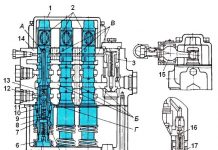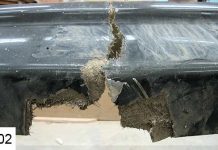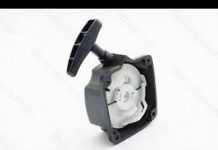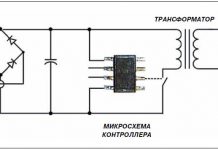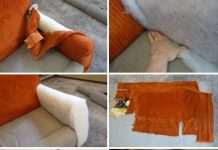In detail: do-it-yourself audi a3 repair from a real master for the site my.housecope.com.
The AUDI A3 compact class was introduced to the market in June 1996.
With a length of 4.15 m and a track of 2.51 m, the 3-door A3 provides the necessary comfort. The luggage compartment has a capacity of 350 liters, after reclining the rear seat backrest, the boot capacity increases to 1100 liters.
The car is equipped with a variety of safety equipment. These include the driver and front passenger airbags, as well as the side airbag (manufactured in 1997) and the front seat belt pretensioners. Side body reinforcements in the doors further enhance passive safety.
The body is fully galvanized. A ten-year corrosion-free guarantee is provided. To optimize the weight of the car, some of its elements are made of aluminum. These include, for example, door reinforcements or bumper beams.
Driving comfort is enhanced by a subframe to which the front suspension is attached. The subframe is decoupled from the body via rubber mountings and thus dampens vibrations that would otherwise be transmitted to the passenger compartment. Front-wheel drive models use a rear suspension with wishbones and a connecting beam, in which coil springs and shock absorbers are separated from each other for more favorable volume utilization (the previous model used shock absorbers). Thanks to this, it was possible to increase the width of the opening for placing cargo in the trunk.
The all-wheel drive model has double wishbone rear suspension.
The car can be equipped with both gasoline and diesel engines of various powers, which allows you to make the appropriate choice depending on the economical or sporty driving character of the owner. This manual describes all powertrains.
| Video (click to play). |
The 4-link independent front suspension with installed shock-absorbing struts practically eliminates the influence of the engine operation on the driving process. Front-wheel drive vehicles use a split rear axle arm to optimally position the coil springs and suspension dampers independently of each other. The 4WD model has a double wishbone rear suspension.
The car can be equipped with a five-speed manual gearbox (RKPP), or a four- or five-speed automatic transmission (AT).
The Audi A3 is a compact car with a transverse engine and front-wheel drive or all-wheel drive. The debut of the car took place in 1996. The model is based on the VW Golf 4, but due to the brand image, higher quality workmanship and finishing materials, it had a higher price and occupied the "premium segment" of the golf class.
For the first two years, the Audi A3 was produced only in a three-door body, but already in 1998 a five-door version appeared. The choice of power units is quite wide: buyers were offered a number of gasoline engines, starting with a 1.6-liter model with a capacity of 101 horsepower, two 1.8-liter engines, naturally-aspirated, with a capacity of 125 hp. and a 150-horsepower turbo engine. You could also choose one of two turbodiesel options, 1.9-liter, 90 and 110 horsepower.
In 2000, the model underwent restyling, as a result of which some changes affected the exterior and interior, as well as technical filling: a new turbodiesel with a capacity of 130 horsepower appeared, and the base 1.6-liter engine was also modernized, it became environmentally cleaner and more economical, and its power increased by 1 hp.
The overall reliability of the Audi A3 is quite high, the car is devoid of pronounced weaknesses. The suspension is simple and reliable, the naturally aspirated engines are tough and durable. Turbocharged motors also run for a long time, but they are more demanding on the quality of consumables, and for a long and trouble-free life of an expensive turbine, it is necessary to follow a number of simple rules: before starting to move, warm up the engine for a few minutes, and also let the turbine cool down after work - do not turn off the engine after stopping. at least 30-60 seconds. If the previous owner has neglected these rules, the turbine may die prematurely.
In addition to high quality workmanship and reliability, the advantages of the Audi A3 are undoubtedly all-wheel drive, which allows “connoisseurs” to enjoy refined handling in extreme modes and significantly increases dynamics and safety in the cold season.
In the spring of 2003, the 2nd generation of the Audi A3 debuted.
The AUDI A3 compact class was introduced to the market in June 1996.
With a length of 4.15 m and a track of 2.51 m, the 3-door A3 provides the necessary comfort. The luggage compartment has a capacity of 350 liters, after reclining the rear seat backrest, the boot capacity increases to 1100 liters.
The car is equipped with a variety of safety equipment. These include the driver and front passenger airbags, as well as the side airbag (manufactured in 1997) and the front seat belt pretensioners. Side body reinforcements in the doors further enhance passive safety.
The body is fully galvanized. A ten-year corrosion-free guarantee is provided. To optimize the weight of the car, some of its elements are made of aluminum. These include, for example, door reinforcements or bumper beams.
Driving comfort is enhanced by a subframe to which the front suspension is attached. The subframe is decoupled from the body via rubber mountings and thus dampens vibrations that would otherwise be transmitted to the passenger compartment. Front-wheel drive models use a rear suspension with wishbones and a connecting beam, in which coil springs and shock absorbers are separated from each other for more favorable volume utilization (the previous model used shock absorbers). Thanks to this, it was possible to increase the width of the opening for placing cargo in the trunk.
The all-wheel drive model has double wishbone rear suspension.
The car can be equipped with both gasoline and diesel engines of various powers, which allows you to make the appropriate choice depending on the economical or sporty driving character of the owner. This manual describes all powertrains.
The 4-link independent front suspension with installed shock-absorbing struts practically eliminates the influence of the engine operation on the driving process. Front-wheel drive vehicles use a split rear axle arm to optimally position the coil springs and suspension dampers independently of each other. The 4WD model has a double wishbone rear suspension.
The car can be equipped with a five-speed manual gearbox (RKPP), or a four- or five-speed automatic transmission (AT).
1.0 Controls and receptions of safe operation
1.1 Location of controls and instruments
1.2 Keys, unified body locks and burglar alarms
1.3 Power windows and rear-view mirrors
1.4 Security systems. Transportation of children
1.5 Seats
1.6 Trunk
1.7 Adjustable steering column
1.8 Hand brake
1.9 Automatic transmission
1.10 Acoustic parking aid
1.11 Ignition switch and engine start
1.12 Co.
2.0 Audi A3 / S3 cars
2.1 Vehicle identification numbers
2.2 Purchasing spare parts
2.3 Service technology, tools and equipment of the workplace
2.4 Jacking and towing
2.5 Starting the engine with an auxiliary power source
2.6 Checks that the vehicle is ready for use
2.7 Automotive chemicals
2.8 Diagnostics of malfunctions of components and systems of the car
.
3.0 Routine care and maintenance
3.1 Routine Maintenance Schedule
3.2 General setup information
3.3 Checking fluid levels, monitoring leaks
3.4 Checking the condition of tires and the pressure in them
3.6 Changing the impellent oil and oil filter
3.7 Checking the timing belt for damage, measuring wear
3.8 Checking the brake system
3.9 Checking the fuel system
3.10 Rotation and replacement of wheels. Anti-skid chains
3.11 Checking the condition and replacing the hoses
4.0 Engine
4.1 Checking the compression in the engine cylinders
4.2 Checking the engine using a vacuum gauge
4.3 Removal and installation of the lower cover of the engine compartment
4.4 Removal and installation of the engine / manual transmission
4.5. Four-cylinder petrol engines 1.6, 1.8 l
4.6 Diesel engines
4.7. Overhaul
4.8. Lubrication system
4.9. Removal and installation of a toothed belt
.
5.0 Cooling and heating systems
5.1 Engine cooling system
5.2. Ventilation, heating and air conditioning systems
5.3 Antifreeze - antifreeze
5.4 Changing the coolant
5.5 Removal, installation and inspection of the thermostat
5.6 Removal and installation of a radiator and fan
5.7 Removal and installation of the coolant pump
5.8 Checking the pressure cooling system
5.9 Checking the cooling fan thermal switch
.
6.0 Power supply and exhaust systems
6.1. Supply system
6.2. General information and safety measures
6.3. Diesel injection system
6.4. Exhaust system
.
7.0 Engine electrical equipment
7.1. Electronic ignition and injection control system
7.2. Charging and starting systems
.
8.0 Manual gearbox
8.1 Removal and installation of manual transmission
8.2 Gear shift drive
8.3 Removal and installation of the body of the gear selection mechanism
8.4 Adjusting the switching actuator
.
9.0 Automatic transmission and four-wheel drive models
9.1 Adjusting the automatic transmission shift selector cable
9.2 Removal and installation of automatic transmission
9.3 Diagnosis of electrical components and reading of fault codes
9.4 Four-wheel drive
.
10.0 Clutch and drive shafts
10.1. Removal, installation and check of clutch
10.2. Removal and installation of drive shafts
.
11.0 Braking system
11.1 Replacing the front brake pads
11.2 Removal and installation of rear wheel disc brakes
11.3 Checking the brake disc thickness
11.4 Removing and installing brake disc / caliper
11.5 Adjusting the parking brake
11.6 Brake fluid
11.7 Bleeding the brake system
11.8 Removing and installing brake hose
11.9 Checking the brake booster
11.10 Removal, installation and adjustment of the brake light switch
11.11 Removal and installation
12.0 Suspension and steering
12.1 Front suspension
12.2. Removal, check and installation of the ball joint
12.3 Rear suspension
12.4. Removal and installation of shock absorber and spring
12.5 Steering
12.6. Removal and installation of the airbag unit
.
13.0 Body
13.1 General information and safety measures
13.2 Body care
13.3 Caring for vinyl trim panels
13.4 Care of upholstery and carpets
13.5 Repairing minor damage to body panels
13.6 Repair of significant damage to the body
13.7 Removal and installation of the interior mirror
13.8 Removing and installing armrest
13.9 Removal and installation of the lower center console
13.10 Removing and installing safety diagnostic connector
13.1.
14.0 On-board electrical equipment
14.1 Electrical equipment of the comfort system
14.2 Diagnosis of malfunctions of on-board electrical equipment - general information
14.3 Checking the wiper motor
14.4 Checking the heated rear window
14.5 Checking the brake light
14.6 Removal, installation and check of a sound signal
14.7 Fuses
14.8 Fusible links
14.9 Circuit breakers (thermal relays)
14.10 Relay
14.11 Replacing the remote control key batteries
14.12.
15.0 Wiring diagrams
15.2 Symbols on electrical diagrams
15.3 Earth connections (only for countries with cold climates)
15.4 Ground connections
15.5 Battery, starter, alternator, main fuse box / battery
15.6 Control unit for Motronic, fuel pump relay, injectors, ignition system, Hall sensor
15.7 Control unit for Motronic, knock sensors, engine speed sensor, coolant temperature sensor
15.8 Surf.
Recently, manufacturers have been trying to complicate or completely eliminate the possibility of self-repairing a car. As a result, intervention and effective troubleshooting is almost impossible without specialized knowledge and tools.
But if you want to "tinker" with the car yourself and at the same time drive a compact representative of the premium segment, then the old Audi A3 of the first generation is worthy of recommendations. For example, we chose a pre-styling model with a popular 1.8-liter gasoline engine.
Only positive impressions. The car is ideally thought out in terms of ease of self-maintenance. After several operations, you will come to the conclusion that the designers did not seek to complicate the life of inexperienced people, but, on the contrary, tried to help them. For this, everything is done very soundly. Even in spite of the old age (a copy of 1999), the screws are unscrewed everywhere very easily - there is no corrosion.
Many procedures do not require any tool at all. Replacing bulbs in the tail light or front optics, checking fuses, cabin filter, and even ... changing the coolant - you can do all this without using keys!
Armed with a Phillips screwdriver, you can replace the turn signal bulbs. For most of the elements (starter, alternator), access is just a dream.
Difficulties? They cannot be avoided when working with the engine. Only an experienced mechanic can correctly diagnose a malfunction of the timing chain drive and pushers. In addition, some types of operations are quite complex (many elements have to be dismantled) and expensive. So it's better to let the specialists in the services do it.
Circuit breakers.

You will find the entire set of fuses after opening the driver's door on the side of the dashboard. You need to pry off the large cover with a key. A special hole is provided for this in its lower part. On the inside of the cover you will find a pretty clear description of the location of the fuses.
Cooling system.

The manufacturer does not provide for the need to change the fluid (G12 Plus, 5 liters). But you should regularly check its condition, and change the antifreeze every three years. A convenient drain valve is located at the bottom of the radiator.
Cabin filter.

Audi A3 is an example of a reference filter placement. Simply lift up the hood and remove the seal from the engine board. Then lift the plastic cover, detach the two latches and remove the filter. Replacement is provided every 30,000 km. The cost of the filter is from $ 5.
Air filter.

The air filter element is easily accessible. You will find it on the left side of the engine compartment. Using a Phillips screwdriver, remove the two screws and remove the cover from the hooks on the opposite side. The filter element must be replaced every 60,000 km. The cost of the filter is about $ 7.
Headlights and turn signals.

Replacing incandescent bulbs is fairly easy. It is necessary to unfasten and remove the cover under which the incandescent lamps are located.In the case of a turn signal, it is necessary to turn the screw in the holder with a screwdriver through the hole in the wing, and after compression the turn signal will come out.
Rear lights.

Even an inexperienced person will only have a few minutes to replace bulbs in the tail light. Simply remove the lid from the side of the trunk and squeeze the tabs on the lamp plate. You don't even need to disconnect the wiring connector.
Lubrication system.

A 1.8 liter engine requires 4.5 liters of oil with a viscosity of 5W-30 (quality class according to the VW standard 500.00 or 502.00). The filter is located at the front of the engine. It is best to approach it from below. To unscrew the drain plug, you need a 19 mm wrench.

Candles are another example of thoughtful design. They are located deep under the manifold, but the manufacturer has provided a comfortable grip. You will need a long wrench to unscrew the candles. Replacement is recommended every 60,000 km. Candles - NGK BKUR6ET.
Suspension and brakes.

In the front, it is mostly the little things that break. The rear beam is very robust (1). Replacing the stabilizer struts (3), ball arm (4) and brake pads (2) will not seem too difficult to an amateur mechanic.
Working time: 30 minutes - 90 minutes.
Automatic belt tensioner.

The automatic tensioner makes it easy to change the drive belt. But it is located at the front of the engine in a hard-to-reach place. During replacement, it can be difficult to correctly install the belt.
Engine cover.

The 1.8-liter engine is covered with a cover that improves aesthetics and reduces noise levels. To remove it, unscrew the four bolts with a 10 mm wrench.
Timing gear and minor oil leaks.

Replacing the timing belt is recommended every 120,000 km. However, even removing the cover to check the condition of the belt requires a number of preparatory steps. It is better to entrust this task to a mechanic.
The valve cover and crankcase ventilation system are just some of the places where oil leaks can occur. But the top of the engine is covered with a manifold, making it difficult to find leaks.
Self-service on an Audi A3 is pure pleasure. It seems that the designers, creating the car, tried to simplify as much as possible all aspects of daily operation and minor repairs on the road. For example, replacing a light bulb even at night when it rains shouldn't take more than 5 minutes.
Multimedia guide to repair and operation of Audi A3 and Audi S3 cars. The manual covers the Audi A3 and Audi S3 models with 1.6L (AEH), 1.8L (AGN, AGU, AQA, AJQ, APY) in-line four-cylinder petrol engines and 1.9L diesel engines (AGR, ALH, AHF, ASZ), front-wheel drive and with all-wheel drive, production since 1997.
Hundreds of illustrations and photographs show the various stages of repair work on Audi A3 and Audi S3 vehicles. Quick and easy troubleshooting sections in the repair manual help you troubleshoot. Detailed wiring diagrams help you locate electrical faults and facilitate the installation of additional equipment.
Here you will find data on the repair of: engine, power system, exhaust system, clutch, gearbox, front and rear suspension, steering, brakes, wheels and tires, body, electrical equipment, as well as recommendations for maintenance and diagnostics of electronic systems management. Diagnostic codes are given. In addition to the repair manual, this CD contains detailed operating instructions for the Audi A3.
Obviously, used cars imported from European countries and sold in showrooms are subject to the most frequent and expensive repairs.The most common diseases that occur while still under warranty or after a short time after the end of the warranty period for the model are:
- Almost obligatory repair of automatic transmission Audi A3
- Not very strong and durable suspension
- Unpredictable headlight surprises
It's no secret that repairing an Audi A3 is not cheap in an official showroom, even when it comes to minor intervention or standard maintenance. Therefore, there is an alternative to our Autotech Center "Star-Motors", which offers similar services at completely different prices, without reducing the price of quality.
Why Audi A3 is sick
Despite all the external attractiveness and overall reliability of the car, there are still several features that sooner or later all owners of the model encounter:
- Acceleration lame due to some properties of the turbine
- Weak manual transmission, requiring intervention almost always
- Thermal insulation is clearly not designed for the Russian winter cold
Additional difficulties in frosty times:
- The machine takes a long time to warm up
- Frozen windows do not work
- Extraordinary repair of the Audi A3 due to the state of the chassis after winter
Our services :
Fuel system
Exhaust system
Brake system
Repair and maintenance of the model in the autotechcenter
Oil consumption must be carefully monitored, otherwise the engine could be damaged. You can track down and eliminate the cause of overconsumption of oil in our car service. Experts are very familiar with the features of the model, so a long diagnostics will not be required, and the repair of the audia3 will be done quickly enough.
If the car is operated in a city, for which it was created, then problems with the brakes almost never arise; from time to time, for preventive purposes, the state of the ABS system should be assessed. To carry out such work, you should contact, if not to a car dealership, then definitely not to the nearest service station, but to where they can competently remove the support, we have the necessary knowledge and equipment for this.
The multimedia manual in Russian describes in detail the front- and all-wheel drive model of 1996, including the S3 with 1.6i (AEH) engines, 8-valve 100 l / s, 1.8-liter atmospheric and turbocharged: 1.8i 20V ( AGN), 1.8i Turbo 20V (AQA, AGU, AJQ, APY), and diesel engines 1.9TDi 90-110 l / s (AGR, AHF, AGR, ALH, ASZ). Illustrations are present.
general information and description, identification numbers and VIN decoding, service technology and special tool, fault diagnosis, starting from a starting device, performance check, oil, lubricants, special fluids and other auto chemistry, Audi A3 car control and safe operation, keys, safety and transportation of children, seats, trunk and other information that the owner should familiarize himself with first after downloading.
maintenance schedule, checking the level of various operating fluids, checking the tires and the pressure in them, checking the timing belt and drive belts, brake and fuel systems, replacing the brake fluid, checking the cooling system, inspecting the suspension and steering, battery, battery care and charging, replacement oil, air, fuel filters and cabin filter, checking the oil level in manual and automatic transmissions.
Separate sections include: engine, gearbox, suspension, body, steering, clutch, A3 fault diagnosis
Not all instructions have wiring diagrams. There are wiring diagrams of the Audi A3, as well as explanations and designations.
Repair of the Audi A3 engine can be major, or it can be partial. The type of repair is determined only after diagnostics by a minder. Partial overhaul of the Audi A3 engine may include replacing the GBK gasket, replacing valve stem seals, replacing valves. Partial repairs usually do not include removing the engine block, boring, grinding, liner, etc.
You should not decide to repair the Audi A3 engine yourself.People often come to the service who say - “my neighbor told me that I need to change the cylinder head gasket and everything will go away”. Of course, we can listen to the client and go to a meeting, but if this does not help in solving the problem, all responsibility will fall on the client, and not on the service minder who diagnoses and is responsible for him.
Service station on Grazhdanka - 603-55-05, from 10 to 20, no days off.
Service station in Kupchino - 245-33-15, from 10 to 20, no days off.
WhatAapp / Viber: 8-911-766-42-33
When to repair the engine:
- increased consumption of engine oil in the internal combustion engine;
- smoke from the exhaust pipe;
- carbon deposits on spark plugs;
- uneven engine idling;
- increased consumption of gasoline;
- significant drop in engine power;
- knocking in the engine or extraneous sounds that were not there before;
- low oil pressure in the engine;
- the engine is overheated.
Warranty for work- 6 months no mileage limit.
Engine diagnostics during repair with us is free!
The final cost of an engine repair depends on many factors. Often, people disassemble the engine themselves, trying to make engine repairs with their own hands. When it comes to the understanding that they cannot assemble it themselves, they bring us a disassembled engine. When you call the service station, please specify the current condition of the engine and you will be told the exact cost of its repair.
If the car is not in motion, we can send a tow truck.
I noticed that on the Audi A3 2008-2009 they suffer from the problem of the driver's door window regulator, and it is the S-Line.
it began with the fact that sometimes the window lifter stopped working, after 3-4 months the car began to open itself, sometimes it did not close, and after that the buttons on the door stopped working altogether
As a result, the car does not close in any way, it is already dark outside, -20 cold.
and then parsing the door in front of the entrance and searching with a tseshka in his teeth, and here is the problem on his head in the form of a broken door harness.
Well, then the collective farm wiring and we are waiting for a new door harness from the ebay
For the first time, the Audi A3 was released in 1996, when it was presented at the Geneva Motor Show. It was from this year that the mass production of the new iron horse began, which joined the golf class. It is also no secret that already at that time the brand was completely owned by Volkswagen, and therefore the Golf, popular all over the world, was used as the basis for the development of the A3. Below I would like to consider the performance characteristics of A3 (8L1) 1996/09 - 2003/05 and A3 (8P1) 2003/05 - 2008.
Let's start with an early model that literally blew up the overseas market. The range of power units with which the A3 is equipped is more than extensive, which has already become a tradition for the German brand in question. Repairs of the 8L1 generation 1996/09 - 2003/05 are often associated with the need to interfere with the operation of the most powerful power unit, which provides the driver with 225hp. The problem is that in the presence of a turbocharger and high power, this engine is not particularly durable, so there are frequent cases of overhaul up to 200-250 thousand kilometers. The most reliable are the naturally aspirated 1.8-liter engine, as well as the least powerful 1.6-liter version with 101hp. Repair of A3 (8L1) 1996/09 - 2003/05, requiring intervention in the operation of these motors, is limited to replacing the timing belt every 60-70 thousand kilometers and timely cleaning of the fuel system. Also, do not forget that German engines are quite demanding on the quality of the consumables being filled, so oil should be purchased only from trusted sellers.
Always in stock and on order (within an hour) all consumables.
Up to 1 year warranty for our work and spare parts.
We will return the repaired car as agreed.
Audi A3 cars are budget cars with reliable engines. Subject to the operating instructions and high-quality consumables, many owners do not experience problems even after 100 thousand kilometers. However, natural wear and tear or the influence of external factors affect the durability of the power unit.It is extremely difficult to carry out repairs with your own hands without knowledge and experience. At our car service, the price of an Audi A3 overhaul starts from 30,000 rubles. We will quickly restore the motor, providing quality assurance.
In addition to natural wear and tear, over time, malfunctions arise as a result of mechanical damage, unreported service calls or the use of low-quality consumable fuel. Symptoms can help determine the presence of problems:
difficulty starting the engine;
- the appearance of strong vibrations;
- smoke of uncharacteristic colors and volume from the exhaust pipe;
- knocking, hum and other noises;
- loss of power or dynamics while driving;
- increased fuel consumption and other signs.
If the problem is not resolved in a timely manner, the engine will need a major overhaul after 50,000 km.
we repair both gasoline and diesel engines!
LEAVE YOUR PHONE
and we will contact you in 15 minutes
Despite the great experience of the German company in creating power units, A3 motors have a number of characteristic diseases. Some types of breakdowns are encountered by almost every owner of this car. The main problems include:
- breakdown of the thermostat;
- deformation of hydraulic supports (cushions);
- "Floating" of the unit at idle speed;
- increased oil consumption.
With quick troubleshooting and the use of high-quality oil, the engine is able to overcome more than 300 thousand km without breakdowns.
The lowest price
on the bulkhead
engine in Moscow
Diagnostics
on modern
equipment
To every client
individual
an approach
Warranties for
carried out
work
After renovation,
You'll get
video report
In Moscow, complex services for the restoration of imported motors are carried out by our car service. We carry out work on average in one working day. At the same time, the availability of high-tech equipment allows us to carry out work of any complexity. To identify the nature of the malfunction, we perform free diagnostics using modern computers and software. A complete study of the nodes helps to find the smallest flaws in the operation of mechanisms, as well as to find the most profitable
- quick restoration of the motor without loss of quality of work;
- favorable prices for services;
- warranty periods for repairs;
- convenient payment methods;
- the opportunity to purchase spare parts from our company at a discount and other advantages.
We specialize in the repair of power units of imported cars, so we understand their structure in detail. Specialists in a short time will find the problem and offer a repair option that will significantly reduce your costs.
Our site contains video instructions for repairing Audi. We try to make the range of our materials as wide as possible. Of the most common brands of Audi cars, the following can be distinguished:
- Audi 80
- Audi 100
- Audi A3
- Audi A4
- Audi A6
- Audi A8
- Audi Q7
In addition to the whole variety of breakdowns of Audi cars (although we must admit that these are still reliable cars), such as automatic transmission repairs, engine repairs, steering rack, body and starter repairs, there are several more common problems. Here is a kind of TOP of common malfunctions, in addition to those already mentioned:
Typically, the duct comes off at the point of attachment to the engine. Sometimes its debris gets stuck in the fan. However, due to the location of the duct, the power loss should be negligible. To fix this problem, you can simply use tape or epoxy. You can also remove the top of the duct if needed. If the fan is damaged, it may need to be replaced.
Tripping usually occurs when you are idling or when you press the gas pedal. To fix the problem, you need to identify the cylinders due to which the triplet occurs. You can also change the coils or plugs, perhaps they are the cause of the triplet. If so, replace the coils and plugs with new ones.Also, clogged fuel injectors can be another cause of triplet formation. After you have replaced the cylinder, coils and forks, check the operation of the car engine.
This problem occurs when the high pressure fuel system pump does not supply enough fuel. This usually happens when your engine is running at low to medium revs. If the pump is not working, the vehicle is not getting enough fuel. This malfunction can be solved in at least two ways: by replacing the filters or by replacing the entire pump.
Forced crankcase ventilation allows the accumulated gases to be transferred from the crankcase to the intake manifold. When the pressure rises or falls, the gases from the intake manifold return directly to the crankcase. Symptoms of this problem may be oil forced out through the filler cap.
The multimedia manual in Russian describes in detail the front- and all-wheel drive model of 1996, including the S3 with 1.6i (AEH) engines, 8-valve 100 l / s, 1.8-liter atmospheric and turbocharged: 1.8i 20V ( AGN), 1.8i Turbo 20V (AQA, AGU, AJQ, APY), and diesel engines 1.9TDi 90-110 l / s (AGR, AHF, AGR, ALH, ASZ). Illustrations are present.
general information and description, identification numbers and VIN decoding, service technology and special tool, fault diagnosis, starting from a starting device, performance check, oil, lubricants, special fluids and other auto chemistry, Audi A3 car control and safe operation, keys, safety and transportation of children, seats, trunk and other information that the owner should familiarize himself with first after downloading.
maintenance schedule, checking the level of various operating fluids, checking the tires and the pressure in them, checking the timing belt and drive belts, brake and fuel systems, replacing the brake fluid, checking the cooling system, inspecting the suspension and steering, battery, battery care and charging, replacement oil, air, fuel filters and cabin filter, checking the oil level in manual and automatic transmissions.
Separate sections include: engine, gearbox, suspension, body, steering, clutch, A3 fault diagnosis
| Video (click to play). |
Not all instructions have wiring diagrams. There are wiring diagrams of the Audi A3, as well as explanations and designations.





 difficulty starting the engine;
difficulty starting the engine;






